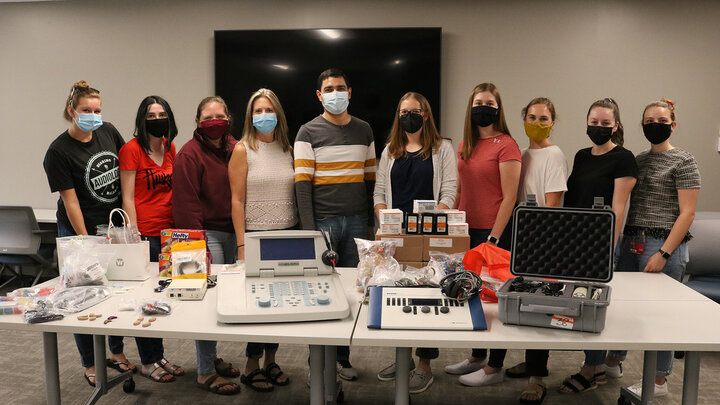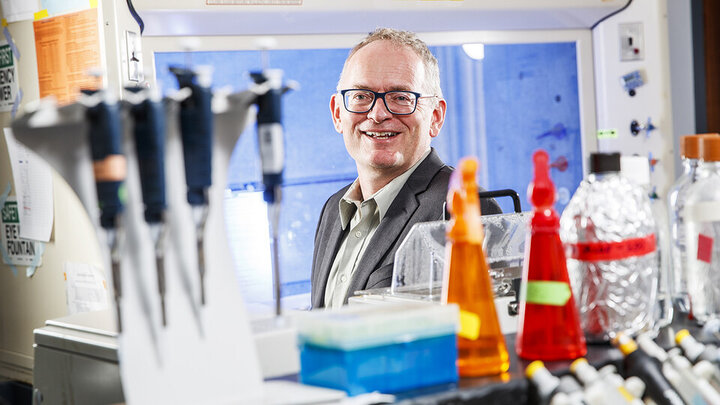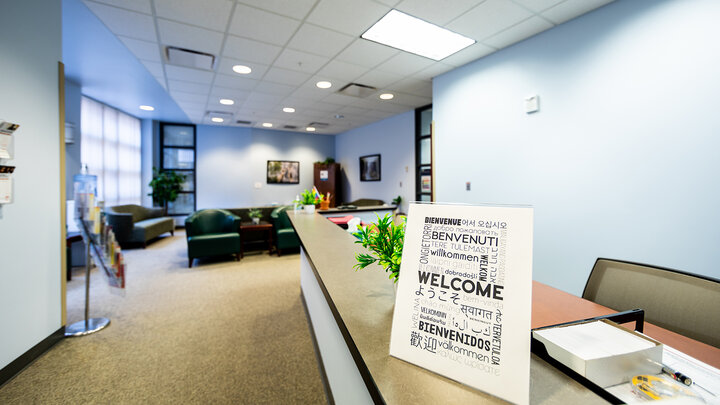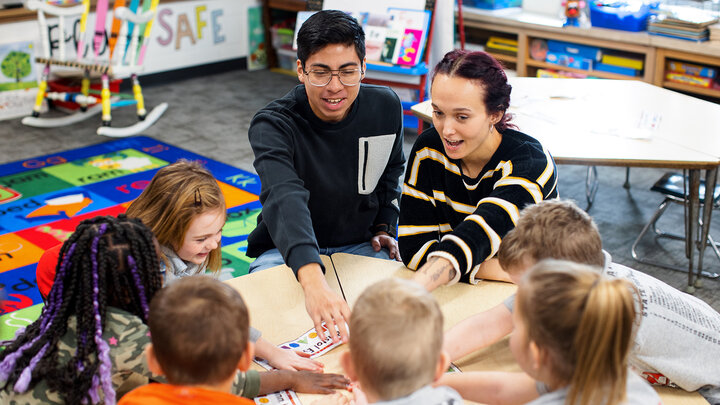It has been more than two and a half years since either Stacie Ray or Hannah Ditmars have been to Nicaragua, but that has not stopped them from continuing the project they started in 2015 to provide sustainable hearing healthcare to a country of people desperately in need of such services.
Thanks to a partnership with the Universidad Nacional Autónoma de Nicaragua, León (UNAN-León), members of the Husker audiology program have made sure their work has progressed despite their physical absence.
“We couldn’t be more pleased to be at the point we are within this strong collaborative relationship with UNAN-León, one of the oldest and most reputable universities in Central America,” Ray said.
Ray, a professor of practice in Special Education and Communication Disorders , and Ditmars, an assistant professor of practice, first visited Nicaragua in 2015 to conduct a needs assessment for hearing healthcare services. What they found was a country with more than 6 million people and only one known audiologist. They immediately began creating a strategic plan for building a sustainable hearing healthcare program.
When the project began, one of its goals was to provide Husker audiology students with opportunities to see a different population and assist in providing hearing healthcare for that population. This experiential learning allows students to think more globally about their impact as future audiologists, which aligns with the first goal of the University of Nebraska-Lincoln’s Forward Together Global Strategy.
“We are able to bring our students in so that they are able to see there are no walls around their knowledge and skills, and how far those knowledge and skills can reach,” Ray said. “I think that’s so important to show our students that it’s not just about the job you get and the job you’re going to do within those walls. You have so much to offer within the field that there are really no barriers to how you can use your knowledge and experiences to help others.”
In 2016 and 2017, they led groups of Husker audiology students on study abroad experiences to provide hearing screenings and fit hearing aids. Ray and Ditmars also visited together in 2017 and 2018, and Ray returned in March of 2019, marking the last time anyone from Nebraska’s audiology program set foot in Nicaragua.
Through those trips, Ray and Ditmars helped train audiology technicians at UNAN-León who can provide follow-up care in their absence. Since their last visit, they have also continued to send supplies and equipment.
“I think our goal was also to provide sustainable healthcare, which also means capacity building and training, in addition to seeing patients, because we didn’t want to go fit patients with hearing aids, and then leave and have them not get any follow-up,” Ditmars said.
During one of their early trips, Ray and Ditmars were introduced to Dr. Marvin Gonzalez, a professor from the Research Centre on Health, Work and Environment at UNAN-León. Dr. Gonzalez had a medical background, had studied in London, and had many connections with other universities in Central America, the U.S. and Great Britain, so he immediately became an important contact for Ray and Ditmars.
“He has helped us think more broadly, and when we met with him and discussed our vision, he bought in and understood,” Ray said. “The sustainability aspect of it then became really focused on the train the trainer model to use professionals who already have some kind of degree in medicine, and train them with the hearing healthcare skills that they need in order to become proficient at certain levels.”
In early 2020, Ray and Ditmars hosted Gonzalez for nearly six weeks as a visiting scholar. He returned to Nebraska in August 2021 and spoke to Husker audiology students about the differences between accessibility to hearing healthcare services and treatment in the U.S. and Nicaragua. Following the discussion, the students programmed and verified nearly 50 hearing aids for Gonzalez to take back to individuals in Nicaragua.
In total, Nebraska’s audiology program sent 80 hearing aids, 300 earmolds, two audiometers, one otoacoustic emissions unit, one hearing aid programmer, nearly 5,000 hearing aid batteries, and supplies for repairing and maintaining hearing aids. Gonzalez and his colleague, Juan Ruiz, then fit the hearing aids shortly after they arrived in Nicaragua.
Prior to those most recent hearing aids, Ray and Ditmars had helped served 576 individuals and fit 343 hearing aids in Nicaragua since the project began. Now, they are looking forward to returning in person in early 2022, if possible, and taking the next step by signing a Memorandum of Understanding between Nebraska and UNAN-León.
Besides making the partnership and exchange of ideas and training official, the pending Memorandum of Understanding will also streamline some of the logistics of the collaboration.
“When we have supplies and equipment we need to get into Nicaragua, they have to be approved by the Ministry of Health, so if we have an official Memorandum of Understanding, then UNAN can be our partner in working through that process,” Ditmars said.
The ongoing project also contributes to the second goal of the Forward Together Global Strategy – Partner for Impact – as it aims to close the gap in hearing healthcare needs in Nicaragua. While the focus is to resume regular travel to Nicaragua, Ray and Ditmars know they can continue to provide services from afar thanks to their thriving partnership with UNAN-León.
“So far, everybody has been really open for this collaboration,” Ray said. “UNAN is a fantastic research and medical site for these kinds of patients. They have done a fabulous job of welcoming us in and saying, ‘We’re ready; we need this program here.’”
Special Education and Communication Disorders
College of Education and Human Sciences




